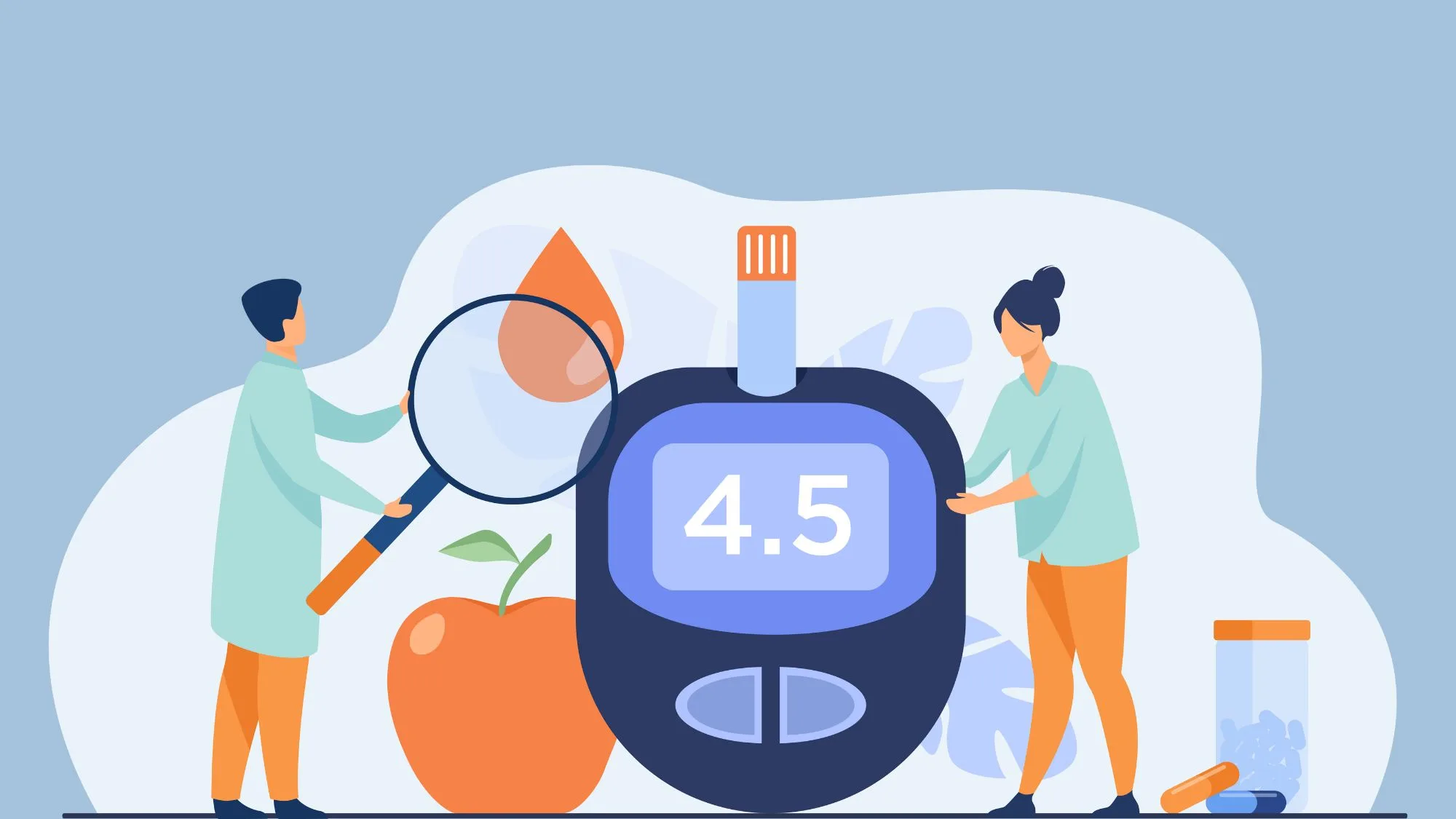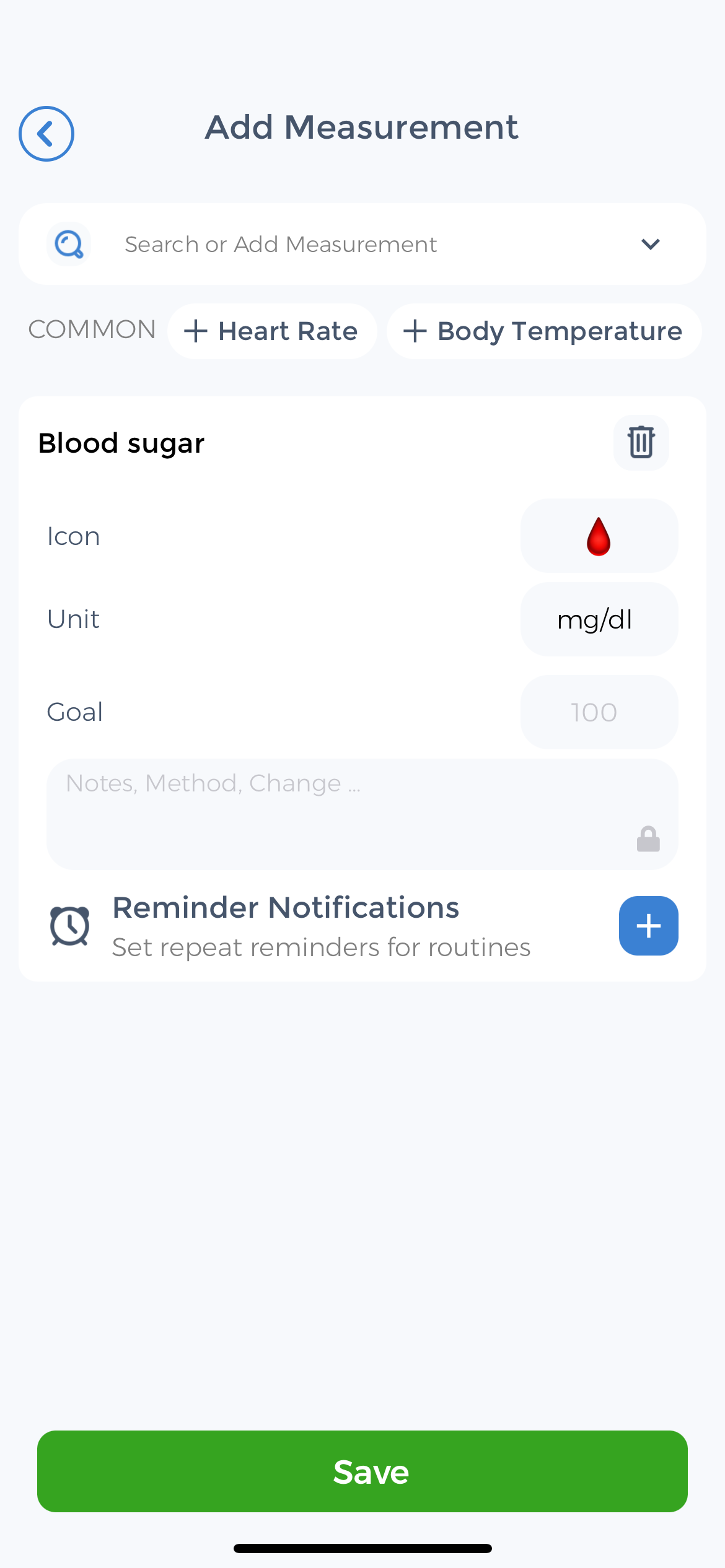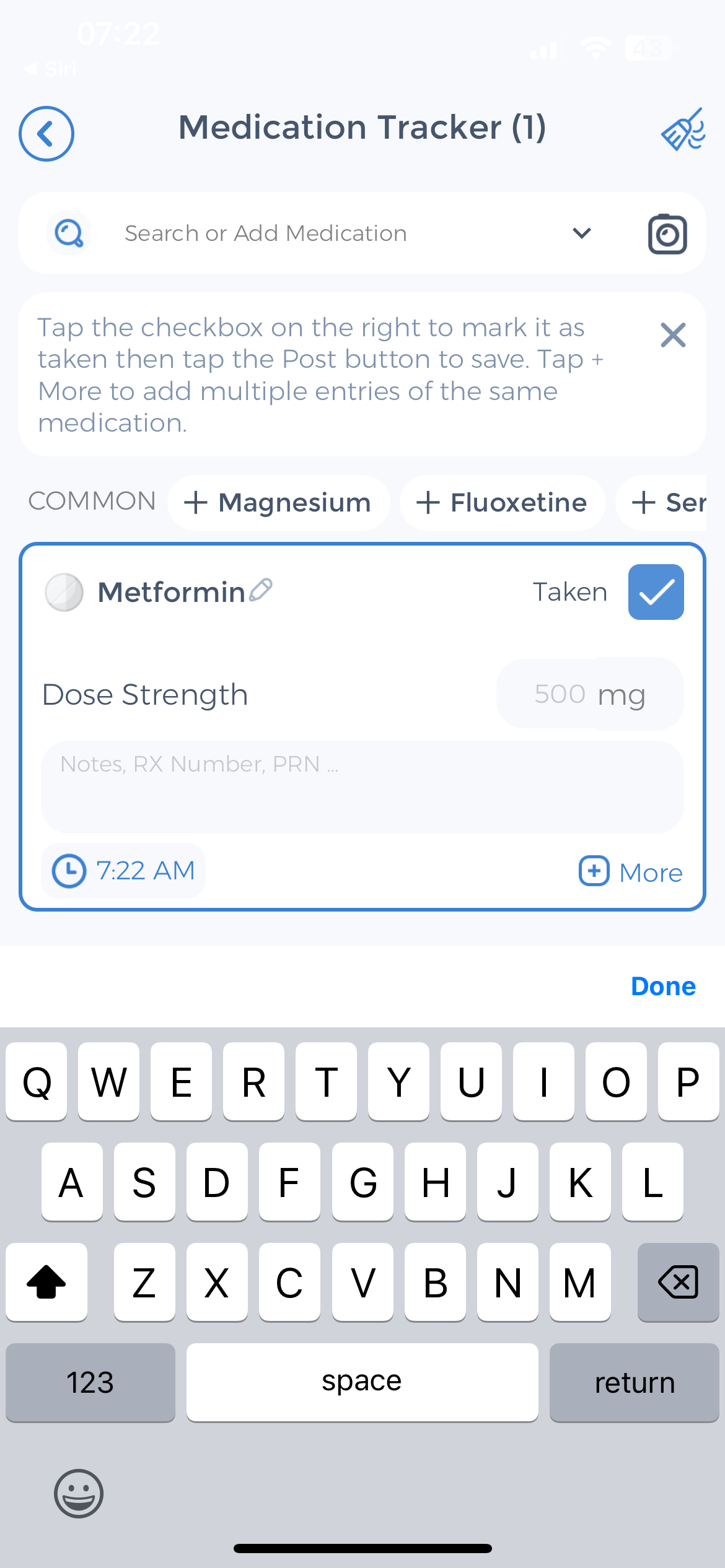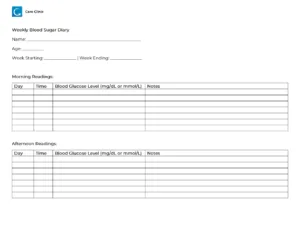
In today’s fast-paced world, it is important to prioritize our health and take proactive measures to manage chronic conditions such as diabetes. One invaluable tool in managing diabetes is a blood sugar diary.
Understanding the Importance of Monitoring Blood Sugar Levels
Monitoring your blood sugar levels is essential for effectively managing diabetes. By keeping a close eye on your blood sugar readings, you can gain valuable insights into how your body processes glucose and identify any areas that may need improvement. Understanding the role of blood sugar in your body is crucial to comprehending why monitoring is vital.
Regular monitoring of blood sugar levels involves using a glucose meter to measure the amount of glucose in a small drop of blood. This process allows most carrying cases of diabetes to track their levels throughout the day, noting any patterns or trends that may require adjustments in their treatment plan. Consistent monitoring provides a comprehensive view of how different factors. Such as food, physical activity, stress, and medication impact blood sugar levels.
Printable Weekly Blood Sugar Diary Template
⬇️ Printable Weekly Blood Sugar Diary Template
The Role of Blood Sugar in Your Body
Blood sugar, also known as blood glucose, is the primary source of energy for your body’s cells. When you eat, your body breaks down the food into glucose. Which is then transported in your bloodstream to provide energy. The hormone insulin, produced by the pancreas, facilitates the absorption of glucose into your cells. However, in individuals with diabetes, the body either does not produce enough insulin or cannot effectively use the insulin dosage it produces, leading to elevated blood sugar levels.
Glucose is not only essential for providing energy to cells but also plays a crucial role in brain function. The brain relies on a constant supply of glucose to function optimally. Making blood sugar regulation vital for cognitive processes such as memory and concentration. Maintaining stable blood sugar levels is key to supporting overall brain health and reducing the risk of cognitive decline.
Health Risks Associated with Uncontrolled Blood Sugar Levels
 Uncontrolled blood sugar levels can cause a myriad of health issues. Including cardiovascular disease, nerve damage, kidney damage, and eye problems. By monitoring your blood sugar levels regularly, you can take proactive steps to prevent these complications and maintain optimal health.
Uncontrolled blood sugar levels can cause a myriad of health issues. Including cardiovascular disease, nerve damage, kidney damage, and eye problems. By monitoring your blood sugar levels regularly, you can take proactive steps to prevent these complications and maintain optimal health.
Consistently high blood sugar levels can damage blood vessels over time. Increasing the risk of heart disease and stroke. Nerve damage, known as diabetic neuropathy, can result in pain, tingling, or numbness in the extremities, affecting quality of life. Kidney damage, or diabetic nephropathy, can lead to kidney failure if left untreated. Emphasizing the importance of early detection through regular monitoring. Additionally, uncontrolled blood sugar levels can impact the tiny blood vessels in the eyes. Potentially causing vision problems or even blindness if not managed effectively.
The Basics of a Blood Sugar Diary
A blood sugar diary is a simple yet powerful tool that allows you to keep track of your blood sugar readings over time. By recording your readings, you can spot patterns and trends, make informed decisions about your meal diet and medication, and better manage your diabetes.
Keeping a blood sugar diary can also be helpful to you and your doctor to identify factors that may be influencing your blood sugar levels. Such as stress, illness, or changes in medication. This detailed record can lead to more personalized and effective treatment plans tailored to your specific needs.
What is a Blood Sugar Diary?
A blood sugar diary is a record of your daily blood sugar readings. Including the date, time, and corresponding glucose levels. It provides a comprehensive snapshot of your blood sugar fluctuations throughout the day. It serves as a valuable reference for you and your healthcare provider.
Additionally, a blood sugar diary can be a source of motivation and accountability. By visually tracking your progress and seeing the direct impact of your lifestyle choices on your blood sugar levels, you may feel more empowered to make positive changes and take control of your health.
Essential Elements of a Blood Sugar Diary
When creating your blood sugar diary, include the following essential elements:
- Date and time: Start each entry by recording the date and time of your blood sugar measurement.
- Blood sugar reading: Write down your blood sugar reading in the appropriate unit of measure (e.g., milligrams per deciliter).
- Notes: Include any relevant information about your meal diet, physical activity, medication, or other factors that may affect your blood sugar levels.
Remember to be consistent in your tracking and to bring your blood sugar diary to all healthcare appointments. This detailed information can provide valuable insights into your overall daily life and help guide discussions with your healthcare team on how to best manage your diabetes.
How to Record Your Blood Sugar Readings
Accurately recording your blood sugar readings is crucial for an effective blood sugar diary. By following a few simple guidelines, you can ensure that your records are accurate and reliable.
When recording your blood sugar readings, it’s not just about jotting down numbers. It’s also important to note accompanying factors that may influence your blood sugar levels. Such as the type and timing of meals, physical activity, stress levels, and medication intake. These details provide valuable insights into how your body responds to different stimuli, helping you and your healthcare provider make informed decisions about your diabetes management.
Choosing the Right Time to Test Your Blood Sugar
Consult with your healthcare provider to determine the best times to test your blood sugar. Typically, you may need to test before meals, two hours after meals, before bedtime, and during other specific situations, such as before and after exercise or when you experience symptoms of low blood sugar. By testing at consistent and specific times throughout the day, you can identify trends in your blood sugar levels and make appropriate adjustments to your diabetes management plan.
It’s also worth noting that factors like illness, changes in medication, or lifestyle adjustments can impact your blood glucose levels. During these times, your healthcare provider may recommend more frequent testing to closely monitor your blood sugar and ensure that it remains within the target ranges. Open communication with your healthcare team is key to adapting your testing schedule as needed.
Interpreting Your Blood Sugar Readings
Understanding how to interpret your blood sugar readings is essential for effective blood sugar management. Your healthcare provider will provide you with target blood sugar ranges, and it is important to monitor whether your readings fall within these ranges. Additionally, pay attention to any patterns or spikes in your readings, which may indicate the need for further intervention or adjustment in your diabetes management plan.
Remember, your blood sugar readings are just one piece of the puzzle. By combining these numbers with other relevant information, such as your diet, exercise routine, and overall well-being, you can gain a comprehensive understanding of your diabetes management. This holistic approach empowers you to take control of your health and make informed decisions to keep your blood sugar levels in check.
Tips for Maintaining a Consistent Blood Sugar Diary
Maintaining a consistent blood sugar diary requires dedication and commitment. By implementing a few strategies, you can turn it into a daily habit that supports your overall diabetes management.
Keeping a detailed blood sugar diary can provide valuable insights into how your body responds to different foods, activities, and medications. By consistently tracking your blood sugar levels, you can identify patterns and make informed decisions to better manage your diabetes. Additionally, sharing your diary with your healthcare provider can help them tailor your treatment plan to suit your individual needs.
Making Your Blood Sugar Diary a Daily Habit
Integrate the habit of recording your blood sugar readings into your daily routine. Choose a specific time each day to test and record glucose levels. Set reminders on your phone or use a dedicated diabetes management app like CareClinic to help you stay consistent. Such apps often have features that allow you to conveniently record and track your blood sugar readings in one place.
Creating a calming and comfortable environment for testing your blood sugar can make the process more pleasant. Consider setting up a designated testing area with all your supplies within reach. Play your favorite music or light a scented candle to make the experience more enjoyable and help reduce any anxiety associated with testing.
Overcoming Common Challenges in Keeping a Blood Sugar Diary
Maintaining a blood sugar diary may present challenges, especially when life gets busy. To overcome these challenges, consider the following tips:
- Keep your blood sugar testing supplies easily accessible, such as by your bedside or in your bag, to ensure convenience and minimize the chances of forgetting.
- Involve a family member or close friend who can remind you to test and record your blood sugar readings.
- Use the features and functionality of an app like CareClinic to set reminders and receive notifications.
Utilizing Your Blood Sugar Diary for Better Health Management
Your blood sugar diary is more than just a record of your daily readings; it is a valuable tool for improving your health management. By utilizing your diary effectively, you can gain insights, identify patterns, and make informed decisions to achieve better diabetes control.
Sharing Your Blood Sugar Diary with Your Healthcare Provider
Regularly sharing your blood sugar log and data with your doctor allows them to assess your progress, make adjustments to your treatment plan, and provide you with invaluable guidance. Utilize the export and share features of an app like CareClinic to easily send your blood sugar records to your healthcare provider.
Adjusting Your Lifestyle Based on Your Blood Sugar Diary Insights
 Reviewing your blood sugar log enables you to identify lifestyle factors that affect your blood glucose meters. Use this information to make targeted changes in your diet, exercise routine, medication adherence, and stress management techniques. By tailoring your lifestyle choices to your specific needs, you can optimize your blood sugar control and enhance your overall well-being.
Reviewing your blood sugar log enables you to identify lifestyle factors that affect your blood glucose meters. Use this information to make targeted changes in your diet, exercise routine, medication adherence, and stress management techniques. By tailoring your lifestyle choices to your specific needs, you can optimize your blood sugar control and enhance your overall well-being.
Keeping track of your blood sugar levels through a diary is an effective self-care strategy for managing diabetes. By understanding the importance of monitoring blood sugar levels, mastering the basics of a blood sugar log, recording your blood sugar readings accurately, and utilizing your diary’s insights, you empower yourself in your diabetes management journey. Remember, consistency is key, and using resources like the CareClinic app can enhance your experience and make your self-care routine even more seamless and efficient.
Use the CareClinic App to Manage Blood Glucose Testing
Take control of your diabetes management with the CareClinic App, your comprehensive companion for tracking blood sugar levels. With its intuitive interface, the app simplifies the process of logging daily glucose readings. Allowing you to spot trends and make informed decisions easy and functional way. The CareClinic App also offers medications reminder, ensuring you stay on top of your treatment plan. By consistently using the app, you can maintain a detailed health diary, which is crucial for discussing your progress with healthcare providers.
Download the CareClinic App to Track Blood Glucose Levels
Experience the benefits of personalized health tracking by incorporating the CareClinic App into your daily routine. Features like the diet and exercise log help you adjust your lifestyle based on insights from your blood sugar diary, leading to improved health outcomes. Understand the impact of various factors on your glucose levels and work towards better diabetes control. Don’t wait to enhance your self-care strategy; Install App today and take the first step towards a healthier you.



